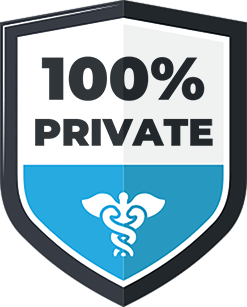The Comprehensive Heart Health Panel is an advanced cardiovascular screening designed to deliver a deep, data-driven view of heart health and overall wellness. Rather than focusing on a single marker, this panel evaluates multiple systems that directly influence cardiovascular risk, helping uncover hidden issues before symptoms arise.
Heart disease often develops silently over years, making early detection essential. This panel assesses cholesterol balance, inflammation, metabolic function, blood health, kidney function, and genetic-related lipid risk to provide a more complete picture of cardiovascular status than standard heart screenings.
In addition to traditional cholesterol testing, this panel includes advanced cardiovascular risk markers such as high-sensitivity CRP, homocysteine, and Lipoprotein(a), factors that can explain heart attack or stroke risk even when standard lipid results appear normal.
By combining foundational and advanced testing into one comprehensive assessment, this panel empowers proactive prevention, personalized care, and long-term heart protection. It is ideal for individuals who want the most complete evaluation of cardiovascular risk available without invasive testing.
What Is Included In This Test?
The Comprehensive Heart Health Test includes the following blood and urine tests:
-
Lipid Panel: Measures total cholesterol, LDL, HDL, and triglycerides
-
Comprehensive Metabolic Panel (CMP): Evaluates kidney and liver function, blood sugar, electrolytes, and protein balance
-
Complete Blood Count (CBC) with Differential: Assesses red blood cells, white blood cells, and platelets
-
Routine Urinalysis: Screens for kidney disease, diabetes, and metabolic abnormalities
-
High-Sensitivity C-Reactive Protein (hs-CRP): Detects low-grade inflammation linked to heart attack and stroke risk
-
Homocysteine: Measures vascular inflammation and clotting risk
-
Lipoprotein(a), Lp(a): Identifies inherited cardiovascular risk not detected on standard lipid panels
Together, these tests provide a broad and highly informative assessment of heart and vascular health.
Why Does This Test matter?
Cardiovascular disease is the leading cause of death in the United States, yet many people are unaware they are at risk until a major event occurs. This panel identifies early warning signs that may not show up during routine checkups.
Advanced markers like hs-CRP, homocysteine, and Lp(a) offer powerful insight into inflammation, arterial damage, and genetic risk, factors that significantly influence heart attack and stroke likelihood.
Tracking these markers over time allows for early lifestyle changes, nutritional support, or medical intervention that can dramatically reduce long-term risk. Even small improvements in inflammation or lipid balance can lead to meaningful cardiovascular protection.
This test equips you with actionable data to make informed decisions, personalize prevention strategies, and take control of your heart health before disease progresses.
Who Should Consider This Test?
This test is ideal for individuals who want the most complete picture of their cardiovascular health.
You should consider this test if you:
- Want advanced insight beyond basic cholesterol testing
- Have a family history of heart disease or stroke
- Have high blood pressure, high cholesterol, or diabetes
- Have experienced a prior cardiac event
- Smoke, are physically inactive, or have excess weight
- Are 40 years of age or older
- Want proactive, preventive heart health monitoring
Early testing supports smarter prevention and long-term wellness.
Convenient, No-Appointment Testing
To complete your test:
- Order online through our website
- Use the lab locator to find a nearby testing location
- Walk in; no appointment required
- Access your results securely in your HealthLabs.com account within one to three business days
110% Price Guarantee!
If you find the same test for a lower price from a comparable provider, contact us. We not only match the price, we beat it by an additional 10 percent of the difference.













